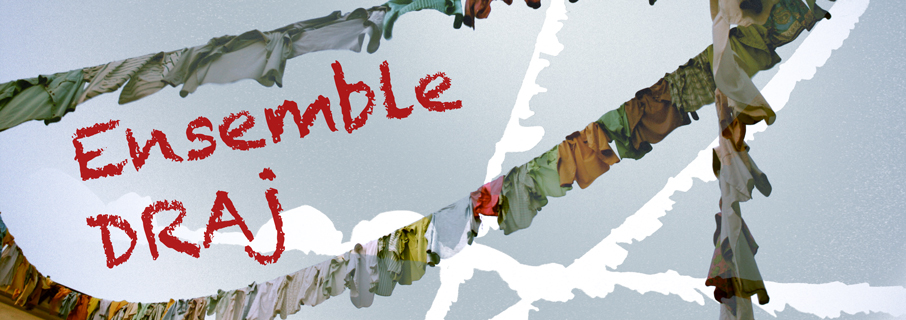CD-Kritiken Kinderjorn 1
As the title "Kinderjorn-Growing up in the Ghetto" suggests, this album is thematically unified. Within the poverty and confines of the ghetto, life rich in emotions, passions, hopes, and dreams exist. The paucity of instruments mirrors the objective poverty of the ghetto. Or, stated another way, the constriction of instrumentation reflects the constraints of the ghetto. But just as the ghetto cannot contain the human spirit, these three instruments, voice, accordion, and cello, combine to display the rich texture of life in the midst of poverty. I intentionally refer to the voice of Manuela Weichenrieder as an instrument due to the way she uses it to blend and complement the accordion and cello. Using only their respective instruments without any overdubbing or looping and with either no or very limited reverberation, the Ensemble Draj brings these Yiddish songs to life.
[...]
The songs presented here are a combination of traditional Yiddish pieces and songs composed in the late 19th century and early 20th century. Ensemble Draj mixes jazz, new music, blues, and classical forms in order to draw out the emotions latent in each piece. Vocalist Manuela Weichenrieder states: "These songs are an unbelievable emotional challenge." Using the full power of their respective instruments, this group more than meets the challenge.
I find this CD captivating. The level of musicianship is outstanding. Ensemble Draj have very creatively and effectively blended several different styles to tell stories that reflect the struggle and joy of life that is forced to live within predetermined boundaries. Kaupenjohann and Schmidt have done some excellent work arranging these pieces. The effective way that Ensemble Draj combines styles reminds me of The Tin Hat Trio--another small ensemble that includes accordion and that experiments with multiple styles. The only criticism that I have does not regard the music, but rather the marketing. The CD that I received did not have an English translation for the program notes and lyrics. While there is a short English synopsis for each piece, I would have preferred to read a translation of the lyrics. I found the program notes for the album on the Internet through a Google search and I had Google do its quite literal translation. Although the Google translation gave me the overall sense of the notes, I would prefer to have a good English translation provided. (Robert Stead (USA) auf der Seite: "The Free-Reed Review" January 2006).
zurück

